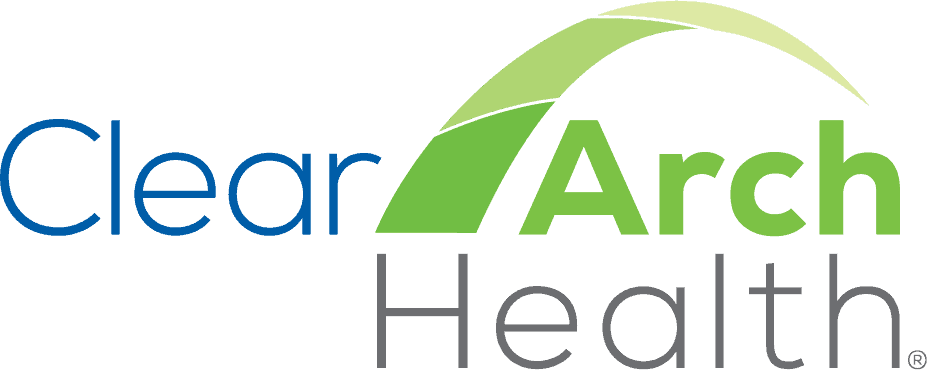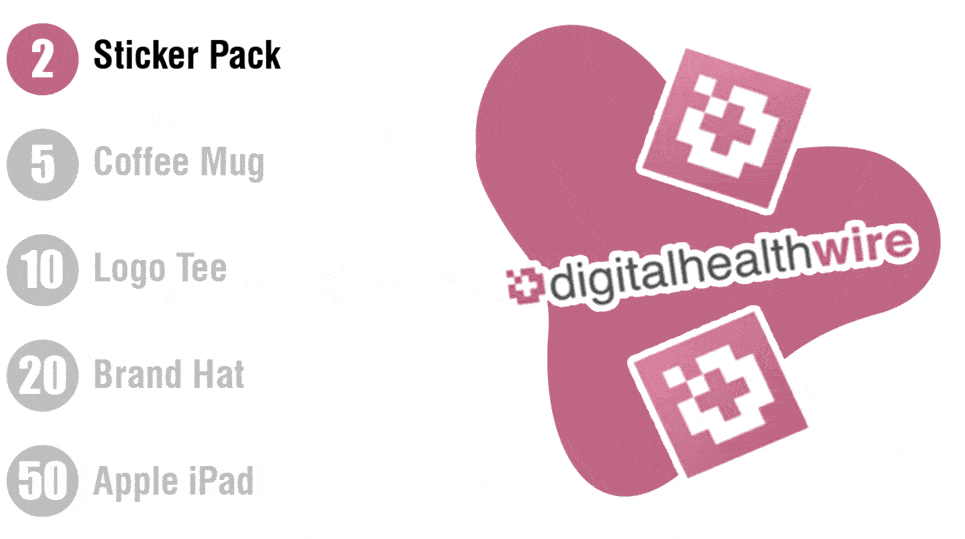|
Rock Health Q1 2023 | Hospital Data Sharing
April 6, 2023
|
|
|

|
|
Together with
|

|
|
|
“Healthcare startups are a lot like Formula 1. All the teams are given the exact same rules, but there’s always a fastest car at the front of the pack and a slowest car at the back. The fastest car operates the best within the rules.”
|
|
Fold Health CEO Ram Sahasranam
|
|

|
|
Rock Health’s Q1 2023 digital health funding report is out and its title couldn’t have put it any better: we’re investing like it’s 2019 again.
Here are the numbers in a nutshell:
- US digital health funding totaled $3.4B across 132 rounds ($25.9M average)
- Trend: $2.2B (Q3 2022) -> $2.7B (Q4 2022) -> $3.4B (Q1 2023)
- Q1 2023: 28 Series A rounds, 10 Series B, 3 Series C, 7 Series D+
- 6 mega-rounds over $100M accounted for 40% total funding
Looking at the past decade (Chart: Funding Trend), it’s clear that the pandemic funding environment was an outlier capped by absolute mania in 2021. The funding uptrend seen in the last few quarters is also a far cry from a true bull run.
- If funding for the rest of the year matched the average funding of the past three quarters, 2023 would still see the lowest funding total since 2019.
- Although January and February brought cooling inflation and some real signs of hope, March stepped on any blooming momentum with the collapse of Silicon Valley Bank.
Something that Rock Health gave a lot of attention to – and for good reason – is that 40% of last quarter’s funding was from six mega-rounds (Chart: Mega-Round Breakdown) :
- Monograph Health – $375M Series C (at-home dialysis)
- ShiftKey – $300M PE Round (staffing marketplace)
- Paradigm – $203M Series A (clinical trial platform – largest digital health Series A ever)
- ShiftMed – $200M Venture Round (staffing and workforce solutions)
- Gravie – $179M PE Round (insurtech)
- Vytalize Health – $100M Series C (Medicare ACO)
The other 126 startups split the remaining $2B slice of pie, with an average round size of $16M (vs. $25.9M with the mega-rounds). It makes a big impact, but if you remember back to 2021, we’re currently looking more sane than 88 mega-rounds combining for 56% of total funding.
The Takeaway
Outside of a positive funding trend over the last few quarters, it’s hard to interpret Rock Health’s report as great news for digital health startups. We have a regional banking crisis that might be in its early innings, the IPO market’s been barren since the 2021 SPAC craze, and the end of PHE isn’t exactly a tailwind for many business models.
That said, it isn’t all doom and gloom. Rock Health is optimistic about the permanent expansion of some telehealth flexibilities and the improving guardrails for data privacy. “Those that make it to daybreak (though we can’t predict exactly when that’ll be) will come out with patched up ships and resilient mindsets.”
|




|
|
4 Tips for Licensing Your Telehealth Providers
Telemedicine is the next frontier of care delivery, yet many providers continue to be hampered by the complex process of medical licensing. If you’re one of them, check out Medallion’s four tips for licensing your telehealth providers.
|
|
Better Diabetes Management With Glooko
Glooko’s diabetes management platform transforms the way patients connect with their providers, driving better engagement, adherence, and ultimately outcomes. Take a look at Glooko’s latest clinical studies to see how their platform is driving sustained improvements for people with diabetes.
|
|
A Flexible Prescription for Nurses
connectRN was founded to give nurses “radical flexibility,” with schedules that are crafted around their lifestyles, priorities, and personal needs. Check out connectRN’s feature in Fast Company to see how the future of healthcare is being built together with nurses.
|
|
- Hospital Website Data Sharing: The latest issue of Health Affairs included an eye-opening investigation into the use of third-party tracking on hospital websites, finding “ubiquitous” use of data transfers to outside companies and advertisers. Nearly every US hospital website shared user data, including page visit info for conditions like HIV and breast cancer, including 3,691 that shared with Google (98.5%) and 2,083 that shared with Facebook (55.6%). Hospitals are in a rough spot and looking for any way to relieve some financial pressures, but this is definitely a pretty tough look.
- Wellth Series B: Wellth locked in a $20M Series B round (total funding now $40B) to expand the reach of its app-based programs that combine financial incentives and behavioral economics strategies to improve adherence to care plans. We’ve covered plenty of studies showing that a combination of incentives and targeted engagement drives behavior change, and Wellth’s metrics appear to back that up: over 90% of Wellth members interact with the app daily, and its payor and provider clients have seen a 42% average reduction in inpatient visits and a 16% improvement in medication adherence.
- Investment Losses Driving Hospital Declines: Another recent article in Health Affairs presented a beautiful breakdown of the performance (or lack thereof) for the investment portfolios of ten large health systems during 2022. The well known health systems saw their operating margins plummet from 9% in 2021 to -6% in 2022, and although lower patient volumes and higher labor costs weren’t helping anyone, the authors lay out how investment losses accounted for 85% of their financial woes.
- Northwell Partners With Philips: New York-based Northwell Health signed a seven-year agreement with Philips to help standardize patient monitoring and lay the foundation for a system-wide platform. Northwell opted for Philips so that it could leverage its existing IT infrastructure while also building in redundancy with local availability, but it still has a heavy implementation on its way considering it earned the title of New York’s largest healthcare provider by having 21 hospitals, 850 outpatient facilities, and treating 2M patients per year.
- Most Patients Overestimate Care Needs: A report from digital triage startup Clearstep highlighted the fact that most patients aren’t great at guessing the appropriate level of care they need. After analyzing a sample of 4.8k triage conversations that also asked patients where they originally intended to get care, Clearstep found that only 25% were correct, while 67% were incorrect and 8% were uncertain. Of the incorrect patients, a large majority (67%) overestimated the level of care they needed, with just 33% underestimating their care requirements.
- Masimo Opioid Halo De Novo: Masimo received FDA De Novo authorization for its Opioid Halo overdose prevention system, making it the first FDA-cleared monitoring solution for detecting opioid-induced respiratory depression. The Opioid Halo combines a fingertip sensor, a pulse oximeter, a home hub, and a smartphone app to provide escalating alerts and automated texts to caregivers if it detects signs of respiratory depression. On a separate but related note – the FDA also approved Narcan, the overdose-reversing nasal spray, for over-the-counter use last week.
- Loneliness Is Bad For Your Health: The McKinsey Health Institute published a piece on the negative health impacts of loneliness, which extend beyond mental distress to serious physical repercussions. “Research shows that loneliness and social isolation can be as damaging to an individual’s health as smoking 15 cigarettes per day, and the National Academies of Sciences found that loneliness among heart failure patients was associated with around a four times increased risk of death and a 68% increased risk of hospitalization.”
- Pager + Google Cloud: Pager is bringing together Google Cloud’s Healthcare API, Dialog flow, and BigQuery data platform to enhance its end-to-end experience for care navigation. The goal of the partnership is to help eliminate data fragmentation to improve communications between Pager’s 23M members and their care teams. The partnership also expands the use of customized workflow automations and system plug-ins, such as conversational clinical and administrative bots.
- Elwyn-Merakey Merger: Two of the largest providers of intellectual and developmental disability (IDD) services, Elwyn and Merakey, are merging to create a nonprofit entity with over $1B in combined revenue. Upon completion of the merger, the joint company will serve 55k patients across 16 states, offering IDD education, behavioral healthcare, and caregiver support. This looks like a textbook horizontal merger, with the press release specifically calling out efficiencies through resource sharing and complementary services.
- Smartwatch-Grade ECGs Predict CV Events: UCL researchers used data from 54k UK Biobank participants to show that 15-second single lead ECG (smartwatch-grade) could predict increased risk of heart failure (median age 58, avg. follow-up 11.5 years). After adjusting for confounding factors, an extra beat coming from the lower chambers of the heart was linked to a twofold increase in heart failure (HR: 2.09). A separate sample of 29k participants verified those results, while also finding that an extra beat from the top chambers nearly doubled the likelihood of Afib (HR: 1.8).
- Epic Testing GPT-4 Integration: Epic CEO Judy Faulkner reportedly told attendees of AMGA’s 2023 Annual Conference that the company is testing the use of GPT-4 to draft provider responses to patient emails since the chatbot is “less terse” than doctors. Epic’s been leaning on the AI-generated bedside manners, with SVP of R&D Seth Hain also revealing that future GPT-4 integrations will support doctors directly within the EHR.
|
|
Discover Clear Arch Health’s RPM Platform
With ready-to-use devices, data-driven dashboards, and integrated analytics, Clear Arch Health’s turnkey RPM platform is designed to meet the evolving needs of care delivery. Find out how Clear Arch Health can help keep your providers connected to their patients and equipped with the actionable insights they need to improve outcomes.
|
|
Upgrade Your Prescribing Workflows
Whether you’re a care delivery organization or building products that have prescribers, there’s no need to build your prescribing workflow from scratch. Find out how connecting your prescribers to clinical decision support powered by real-time drug data can help provide the patient-centered insights needed for medication success.
|
|
Clinical Documentation Integrity For VBC
The growing use of risk-adjusted reimbursement in outpatient settings means clinical documentation needs to keep up, or health systems risk leaving revenue on the table. Check out Nuance’s new blog to learn how shifting reimbursement models make clinical documentation excellence more important than ever, and how AI can help you achieve it.
|
|
|
Share Digital Health Wire
|
|
Spread the news & help us grow ⚡
|
|
Refer colleagues with your unique link and earn rewards.
|

|
|
|
|
Or copy and share your custom referral link: *|SHAREURL|*
|
|
You currently have *|REFERRALS|* referrals.
|
|
|
|
|